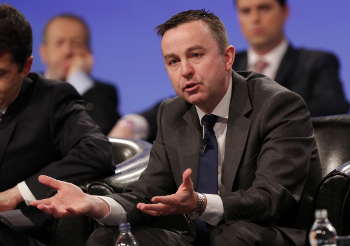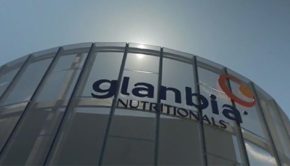Illicit trade costs state €1.5 billion a year

New report by Grant Thornton shows government's response to black economy is failing both retailers and Revenue targets
27 March 2014
AT A GLANCE: ILLICIT TRADE SURVEY RESULTS
- 77% of retailers believe illicit trade in tobacco affects their revenues;
- Six out of 10 notice the impact illicit trade in tobacco has on their footfall;
- 64% believe that the introduction of plain packaging will result in an increase in illicit trade
Ireland’s illicit trade market including fuel laundering, non-duty-paid tobacco, digital piracy and illicit pharmaceuticals, is costing the state €1.5 billion annually.
The startling figure was revealed in a new report issued by chartered accountants Grant Thornton. This found that: "In terms of the incentive for the supply and demand of illicit products in the retail sector, price remains the main driver to partake in illicit trade and no material changes have been made to address this issue since last year."
‘Black economy’ not treated as a priority
At a conference in Dublin to launch the findings, Brendan P Foster, partner at Grant Thornton, said that the issue of plain packaging in tobacco is an intellectual property protection issue and that there will be a strong response from the legal profession and industry to their treatment of it. He said that the state does not treat the "black economy" as a priority using the name change of the "Black Economy Monitoring Group" to "Informal Economy Monitoring Group" as an example. Foster said that it is essential for foreign direct investment which accounts for 23% of employment and 50% of GDP, that "we are not perceived as a rogue nation".
Welcoming the report, Brian Hayes, Minister for State at the Department of Finance said Michael Noonan has always made the point that he wants to collaborate on the issue of the illicit trade, "to tackle it". Hayes added: "While not impinging on the independence of the courts it is important that they take into account the seriousness of the issue." He called in his address for an increase in fines and possible custodial sentences for participants in the illicit trade.
Success in tackling diesel laundering
Meanwhile, Frank Gleeson, chairman of Retail Ireland, pointed to success by the Revenue Commissioners in the tackling of the diesel laundering aspect of the illicit trade and declared a welcome increase in the sale of legitimate diesel as a result. With regard to non-duty-paid tobacco, he said that insufficient action was being taken, and highlighted the fact that although Minister for Health James Reilly had committed on Prime Time to taking a meeting on the issue of tobacco, that he had not done so.
Gleeson said there were not enough resources being put in place to deal with the issue and that legislative changes, such as the criminalisation of those who buy illicit products, must be made. He called again on the government to follow Finland’s model of allowing a maximum of 200 cigarettes to be brought into the country by individual travellers and pointed to the failure of plain packaging on tobacco products in Australia.
Missed Revenue targets
Tax induced growth in the illicit tobacco trade is highlighted by seven successive budget increases in tobacco and alcohol taxes that were forecast to increase tax revenue by €490 million. Instead, the report shows these increased prices have encouraged consumers to buy these goods from the illicit trade and official consumption of these products have fallen and Revenue targets have been missed.
NFRN welcomes report
NFRN Ireland also welcomed the new report, stating it has repeatedly pointed out to members of the government and Oireachtas that the proposed introduction of plain packaging for cigarettes will lead to a surge in illicit trade, as has happened in Australia where plain packaging was introduced at the end of 2012.
The association said its members have told an Oireachtas Committee that almost nobody under the age of 30 comes into their shops to buy cigarettes, yet the level of smoking in this age group is almost identical to ten years ago. This is because young people are sourcing cigarettes on the black market, putting cash into the pockets of criminals and subversives.



 Print
Print






Fans 0
Followers